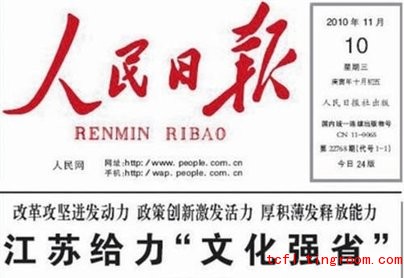给力
gelivable

“给力”是当前在中国极为流行的网络热词,它的字面意思是“给予力量”,但是现在被广泛用做形容词,描述某事物很“酷”、“牛”、“带劲儿”。
The Chinese cyber buzzword "geili" literally means "to give power" but is now widely accepted as an adjective describing something that's "cool," "awesome" or "exciting."
然而,最早在网络上流行起来的却是“给力”的反义词。今年五月,在网上流传的一集日本搞笑动画片的中文配音中,出现了“不给力”的说法,意思是“乏味”、“无聊”。
But it was the word's antonym, "bugeili" -- meaning dull or boring -- that first grabbed public attention after it appeared online in a May episode of a Japanese comic animation.
后来,“给力”一词逐渐演化,发展出按照汉语音译的英文版本“gelivable”、“ungelivable”(否定形式),还有法文版“très guélile”。
The word has since evolved the English-sounding forms "gelivable," and "ungelivable," and the French "très guélile."
2010年11月10日,“给力”一词出现在当天《人民日报》头版头条的标题中。报纸上的“给力”与之前在网络流行的含义有所不同,是“给予力量”、“加油”的意思。尽管如此,一个网络热词竟然登上了相对比较保守的党报,这件事还是让千百万网民们又惊又喜。
On November 10, "Geili" featured in a headline on the front page of the People's Daily. While it had the different meaning "to empower," readers were surprised and delighted to see it used by the usually conservative Party newspaper.
 English
English Japanese
Japanese Korean
Korean French
French German
German Spanish
Spanish Italian
Italian Arab
Arab Portuguese
Portuguese Vietnamese
Vietnamese Russian
Russian Finnish
Finnish Thai
Thai dk
dk